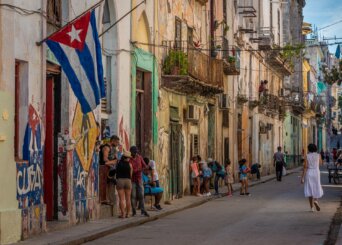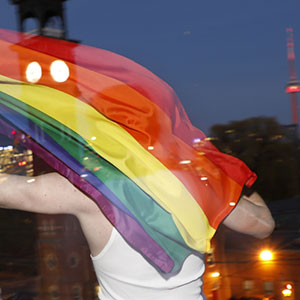- About
- Topics
- Picks
- Audio
- Story
- In-Depth
- Opinion
- News
- Donate
- Signup for our newsletterOur Editors' Best Picks.Send
Read, Debate: Engage.
| topic: | Democracy |
|---|---|
| located: | Cuba |
| editor: | Ellen Nemitz |
Cuba will undergo a major process of law revision in 2022. According to the online magazine OnCuba News, 27 laws and 14 decrees are scheduled to be voted on this year by the National Assembly in a broad effort to review the legislation after the new constitution was approved in 2019. Among the changes expected for this year, at least two are in the centre of controversy: the Family Code and the Penal Code.
The Family Code was written to replace the previous one, which has been in effect since 1975 and is largely considered obsolete and patriarchal. The new legislation includes advances, such as the understanding of marriage as the "the voluntarily arranged union of two persons," the full protection of children and adolescents, the co-responsibility between parents and equal rights for women. It also rules against exclusion, violence and lack of protection, among other topics.
This is the only reform to be put under popular referendum (from 1 February to 30 April), dividing opinions in the island. The referendum did not please part of the LGBTQ community, which fears the prejudiced contribution of conservative sectors and does not agree that their rights should be decided by others. On the other hand, some LGBTQ activists are defending the referendum and religious people have declared their approval for the code: this is an unclear result so far.
Parallel to the moral debate around the Family Code, the national assembly will vote, probably in April, on the new Penal Code, which will potentially broaden the applicability of the death penalty and life imprisonment, for instance. Considered by some analysts as a major setback to human rights, the new code could be an additional tool for the regime to punish those who oppose it.
"We are concerned about [article] 143 of the Penal Code draft. It criminalises anyone who supports, finances or receives resources 'for the purpose of paying for activities against the State and its constitutional order.' It is a vague and ambiguous norm that would facilitate the persecution of activists," said the senior Americas researcher at Human Rights Watch, Juan Pappier. The Code can also serve as a barrier for the funding of independent journalists.
Meanwhile, Cuba remains the centre of human rights violations. Since the violently repressed mass protests that took place on 11 July 2021 - known simply as 11J - more than 700 people are facing trials. Despite the approval of a law to grant prisoners more rights - received without any optimism by specialists in October 2021 -, the NGO Prisoners Defenders reported nearly one thousand political prisoners in one year, many of them teenagers. The number is acknowledged to be a fraction of the reality.
While the new Family Code cements the rights of children and adolescents, the Cuban Foundation for Human Rights denounces in the campaign #FreeTheChildren that several minors are being detained or are facing trial after participating in the 11J protests. In this regard, Prisoners Defenders assesses: "Cuba is shattering its signature and ratification of the Convention on the Rights of the Child, incarcerating and tearing apart the youth, bringing terror to families across the country and causing - in a savage way - irreparable pain to all those imprisoned and their families and loved ones."
Photo by JF Martin

